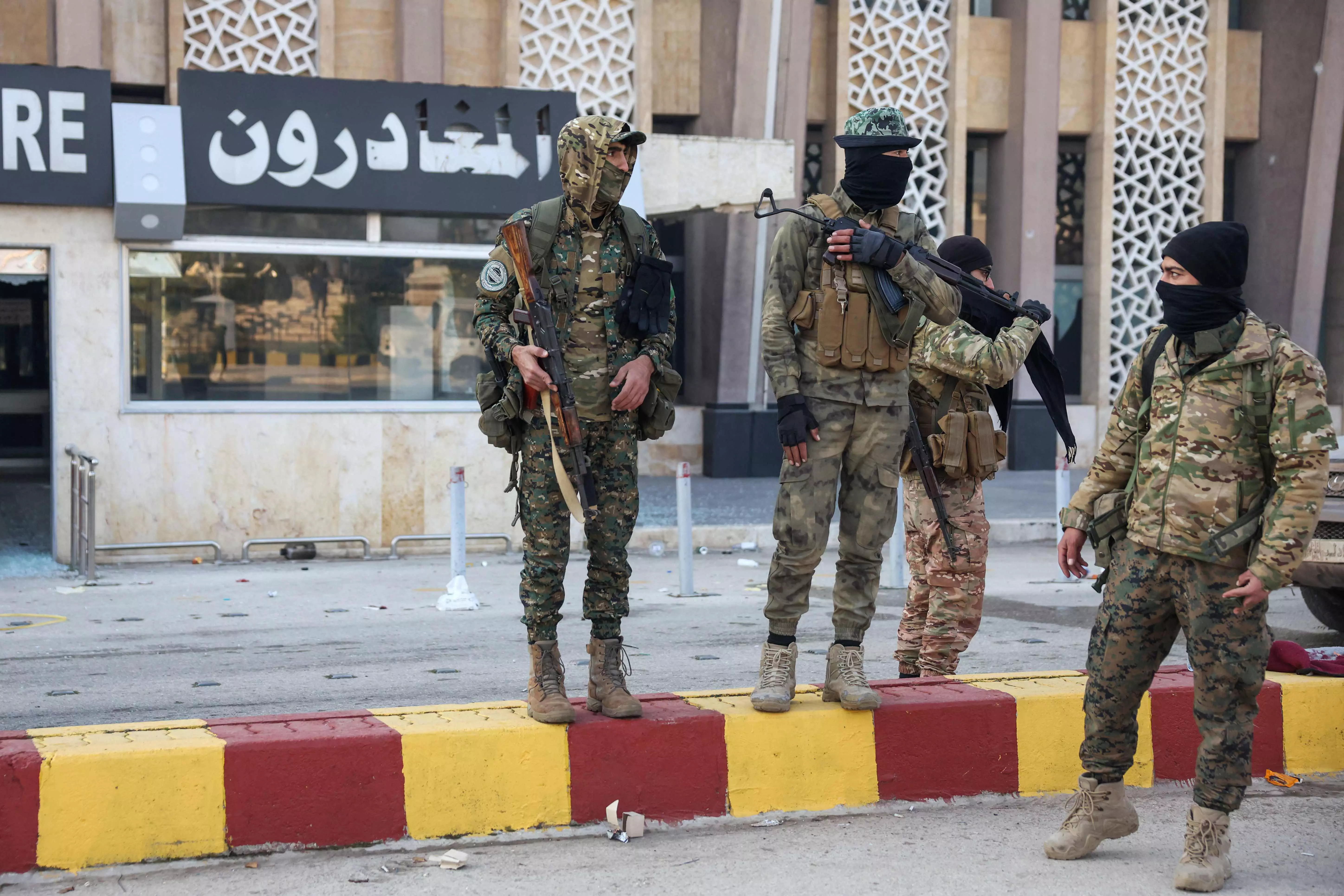Explainer: What is Hayat Tahrir al-Sham, a rebel group in Syria

Anti-regime fighters are stationed at the airport in the northern Syrian city of Aleppo on December 2, 2024. The Islamist Hayat Tahrir al-Sham (HTS) group and allied factions took over Aleppo city at the weekend, except for neighbourhoods controlled by Kurdish forces, according to the Syrian Observatory for Human Rights. (Photo by Omar Haj Kadour / AFP)
In Syria, Rebel fighters, led by Hayat Tahrir al-Sham (HTS) launched a major counteroffensive a few days ago and killed more than 400.
The insurgents took control of the countries, second largest city, Aleppo.
As per the Syrian Observatory for Human Rights, the recent conflict has killed 412 people which includes 61 civilians.
These rebel fighters even moved into various towns and villages in Hama.
What is Hayat Tahrir al-Sham (HTS)
Hayat Tahrir al-Sham (HTS) emerged out of an Al-Qaeda affiliate, Jabhat al-Nusra in 2011.
It became an intimidating force against the Syrian President, Bashar Assad under the leadership of Abu Mohammed al-Jawlani.
HTS disassociated with Al-Qaeda in 2016 and merged with other groups to form its current structure.
In 2018, the US State Department officially designated HTS as a Foreign Terrorist Organisation.
Abu Mohammad al-Jawlani
The head of Hayat Tahrir al-Sham, Abu Mohammad al-Jawlani was previously an Al-Qaeda operative.
To fight the American forces in Iraq, he joined the group in 2003 and became a key player in Jabhat al-Nusra.
His actions have led the US government to put a bounty of 10 million dollars on him.
Under Al-Jawlani's leadership, HTS has risen to a significant power in Syria.
Objective
HTS is committed to establishing Islamic governance in Syria and removing Iranian militias from the region.
According to al-Jawlani's statements, the group identifies Israel as an enemy and reportedly maintains a fighting force of 12,000 to 15,000 troops.
In Idlib province, HTS governs through the Syrian Salvation Government, overseeing welfare services and managing key economic sectors such as banking and oil via institutions like al-Sham Bank and the Watad Company.
The latest HTS offensive began on November 27, coinciding with Israel's agreement to a ceasefire with Lebanon.
Since the civil war started, this is the first time pro-government forces have lost control of Aleppo.
The offensive is said to be a response to escalating attacks by government forces and pro-Iranian militias.
Meanwhile, the US, France, Germany, and Britain have urged for "de-escalation" in Syria, as UN envoy Geir Pedersen cautioned that the "latest developments pose significant risks to civilians and carry serious consequences for regional and international peace and security."
( Source : Deccan Chronicle )
Next Story

